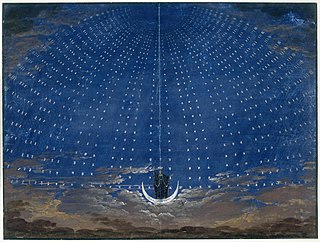
The Magic Flute, K. 620, is an opera in two acts by Wolfgang Amadeus Mozart to a German libretto by Emanuel Schikaneder. The work is in the form of a Singspiel, a popular form during the time it was written that included both singing and spoken dialogue. The work premiered on 30 September 1791 at Schikaneder's theatre, the Freihaus-Theater auf der Wieden in Vienna, just two months before the composer's death. It was the last opera that Mozart composed. Still a staple of the opera repertory, its popularity was reflected by two immediate sequels, Peter Winter's Das Labyrinth oder Der Kampf mit den Elementen. Der Zauberflöte zweyter Theil (1798) and a fragmentary libretto by Johann Wolfgang von Goethe titled The Magic Flute Part Two.
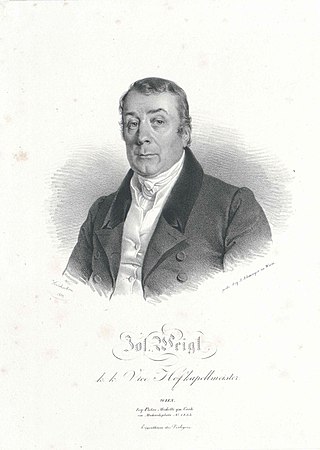
Joseph Weigl was an Austrian composer and conductor, born in Eisenstadt, Hungary, Austrian Empire.

Louis Schneider was a German actor and author.
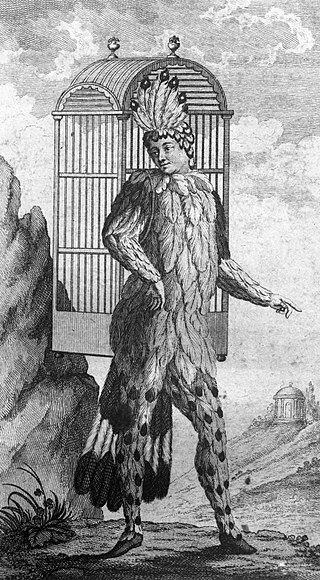
Emanuel Schikaneder was a German impresario, dramatist, actor, singer, and composer. He wrote the libretto of Wolfgang Amadeus Mozart's opera The Magic Flute and was the builder of the Theater an der Wien. Peter Branscombe called him "one of the most talented theatre men of his era". Aside from Mozart, he worked with Salieri, Haydn and Beethoven.
Ignaz Jakob Holzbauer was an Austrian composer of symphonies, concertos, operas, and chamber music, and a member of the Mannheim school. His aesthetic style is in line with that of the Sturm und Drang "movement" of German art and literature.
Franz Xaver Gerl was a bass singer and composer of the classical era. He sang the role of Sarastro in the premiere of Mozart's opera The Magic Flute.

Benedikt Emanuel Schack was a composer and tenor of the Classical era, a close friend of Mozart and the first performer of the role of Tamino in Mozart's opera The Magic Flute.

Maria Josepha Weber was a German soprano of the classical era. She was a sister-in-law of Wolfgang Amadeus Mozart, and the first to perform the role of The Queen of the Night in Mozart's opera The Magic Flute (1791).

The Theater auf der Wieden, also called the Freihaus-Theater auf der Wieden or the Wiednertheater, was a theater located in the then-suburban Wieden district of Vienna in the late 18th century. It existed for only 14 years (1787–1801), but during this time it was the venue for the premiere of no fewer than 350 theatrical works, of which the most celebrated was Mozart's opera The Magic Flute. During most of this period the director of the theater was Emanuel Schikaneder, remembered today as librettist and impresario of The Magic Flute.
The Magic Flute (1791) is an opera by Wolfgang Amadeus Mozart. Other notable works with this title include:
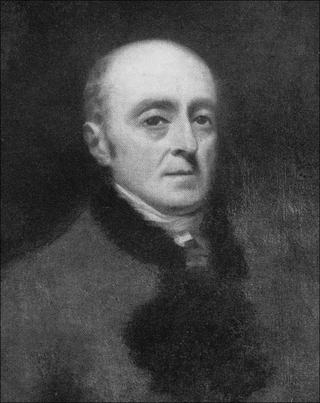
Carl Ludwig Giesecke FRSE was a German actor, librettist, polar explorer and mineralogist. In his youth he was called Johann Georg Metzler; in his later career in Ireland he was Sir Charles Lewis Giesecke. He is falsely accused of being the librettist of his friend Mozart’s The Magic Flute.
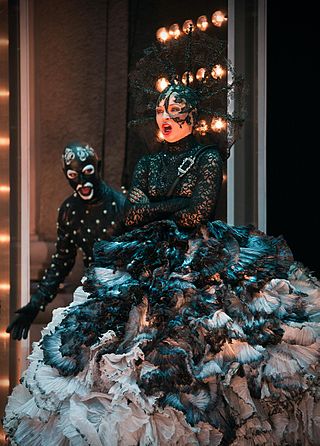
Das Labyrinth oder Der Kampf mit den Elementen. Der Zauberflöte zweyter Theil is a "grand heroic-comic opera" in two acts composed in 1798 by Peter von Winter to a German libretto by Emanuel Schikaneder. The work is in the form of a Singspiel, a popular form that included both singing and spoken dialogue. The opera is a sequel of Mozart's The Magic Flute.
David Joseph Buch is an American musicologist.

The Magic Flute is a celebrated opera composed in 1791 by Wolfgang Amadeus Mozart. Mozart employed a libretto written by his close colleague Emanuel Schikaneder, the director of the Theater auf der Wieden at which the opera premiered in the same year.. Grout and Williams describe the libretto thus:
Schikaneder, a kind of literary magpie, filched characters, scenes, incidents, and situations from others' plays and novels and with Mozart's assistance organized them into a libretto that ranges all the way from buffoonery to high solemnity, from childish faerie to sublime human aspiration – in short from the circus to the temple, but never neglecting an opportunity for effective theater along the way.

The Magic Flute, an opera by Wolfgang Amadeus Mozart with libretto by Emanuel Schikaneder, was composed in 1791 and premiered to great success. It has been an important part of the operatic repertory ever since, and has inspired a great number of sequels, adaptations, novels, films, artwork, and musical compositions.

Katharina Buchwieser was a German operatic soprano and actress. She was known as Cathinka, and her married surname was Lacsny von Folkusfálva. She appeared at theatres of Vienna, the Theater an der Wien and the Theater am Kärntnertor, then the court theatre. Franz Schubert dedicated compositions to her.
Johann Baptist Henneberg was an Austrian composer, pianist, organist and Kapellmeister.
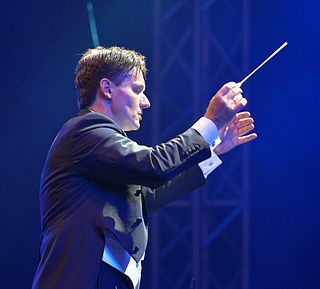
Stefan Klingele is a German conductor. He has been music director and chief conductor of the Musikalische Komödie in Leipzig since 2015.
Henriette SpitzedernéeSchüler, also Henriette Spitzeder-Schüler, was a German operatic soprano and actress. She began her career in Nuremberg. Together with her husband, the bass Josef Spitzeder, she moved on to the Theater am Kärntnertor in Vienna and the Königsstädtisches Theater in Berlin. The couple often appeared together on stage, including as Mozart's Figaro and Susanna.

Das unterbrochene Opferfest is a heroic-comic opera with spoken dialogue in two acts by Peter von Winter with a libretto by Franz Xaver Huber. The premiere took place on 14 June 1796 at the Theater am Kärntnertor Vienna.













